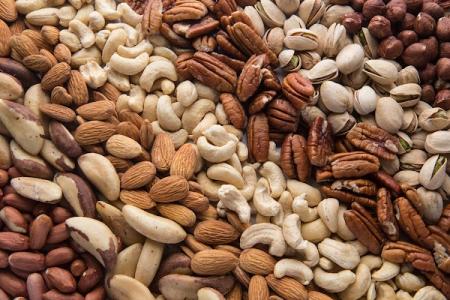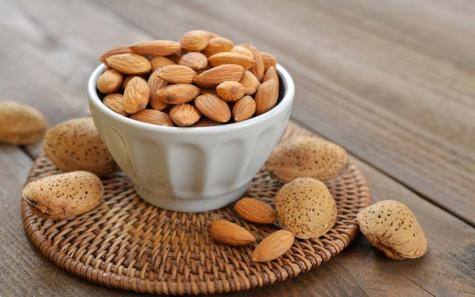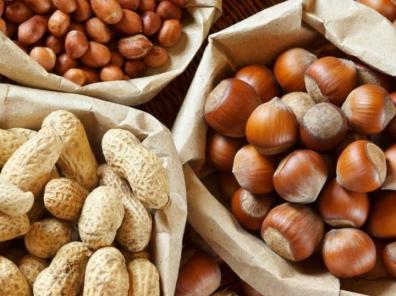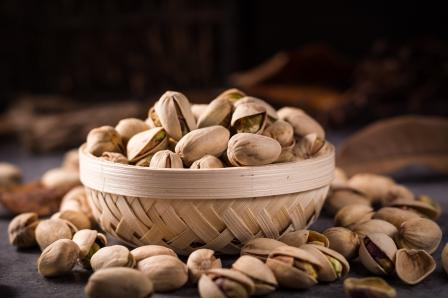Nepal, nestled in the heart of the Himalayas, is a land of vibrant culture, breathtaking landscapes, and culinary delights. Amongst its diverse array of street foods and snacks, roasted peanuts stand out as a popular and beloved choice for locals and tourists alike. In this comprehensive guide, we delve into the world of roasted peanuts in Nepal, exploring their history, production, health benefits, and cultural significance. History and Origin: Roasted peanuts have been a staple snack in Nepal for generations, with their origins dating back to ancient times. Initially introduced as a nutritious and convenient source of sustenance, peanuts quickly became a popular snack enjoyed by people of all ages. The traditional method of roasting peanuts over an open flame or in hot sand has been passed down through the ages, ensuring that the authentic taste and aroma of roasted peanuts are preserved.

.
 Production Process: The production of roasted peanuts in Nepal is a meticulous and labor-intensive process that starts with sourcing high-quality raw peanuts from local farmers. These peanuts are then meticulously sorted to remove any impurities before being roasted to perfection. The roasting process, whether done over an open flame or in a specialized roasting machine, requires skill and precision to ensure that the peanuts are evenly roasted and retain their delicious crunchy texture. Varieties and Flavors: One of the most intriguing aspects of roasted peanuts in Nepal is the wide array of flavors and varieties available to discerning consumers. From classic salted peanuts to spicy masala peanuts and tangy lemon-flavored peanuts, there is a flavor to suit every palate. Additionally, roasted peanuts are often combined with other ingredients such as dried fruits, spices, and herbs to create unique and innovative flavor combinations that are sure to tantalize the taste buds. Health Benefits: In addition to being a delectable snack, roasted peanuts also offer a host of health benefits. Packed with essential nutrients such as protein, fiber, and healthy fats, peanuts are a wholesome and nutritious snack option. They are also rich in antioxidants, vitamins, and minerals that support overall health and well-being. Regular consumption of roasted peanuts has been linked to numerous health benefits, including improved heart health, weight management, and reduced risk of chronic diseases. Cultural Significance: Roasted peanuts hold a special place in Nepalese culture and cuisine, often featuring prominently in traditional festivals, celebrations, and religious rituals.
Production Process: The production of roasted peanuts in Nepal is a meticulous and labor-intensive process that starts with sourcing high-quality raw peanuts from local farmers. These peanuts are then meticulously sorted to remove any impurities before being roasted to perfection. The roasting process, whether done over an open flame or in a specialized roasting machine, requires skill and precision to ensure that the peanuts are evenly roasted and retain their delicious crunchy texture. Varieties and Flavors: One of the most intriguing aspects of roasted peanuts in Nepal is the wide array of flavors and varieties available to discerning consumers. From classic salted peanuts to spicy masala peanuts and tangy lemon-flavored peanuts, there is a flavor to suit every palate. Additionally, roasted peanuts are often combined with other ingredients such as dried fruits, spices, and herbs to create unique and innovative flavor combinations that are sure to tantalize the taste buds. Health Benefits: In addition to being a delectable snack, roasted peanuts also offer a host of health benefits. Packed with essential nutrients such as protein, fiber, and healthy fats, peanuts are a wholesome and nutritious snack option. They are also rich in antioxidants, vitamins, and minerals that support overall health and well-being. Regular consumption of roasted peanuts has been linked to numerous health benefits, including improved heart health, weight management, and reduced risk of chronic diseases. Cultural Significance: Roasted peanuts hold a special place in Nepalese culture and cuisine, often featuring prominently in traditional festivals, celebrations, and religious rituals.
..
In many households, offering guests a bowl of roasted peanuts is a token of hospitality and warmth. Roasted peanuts are also a common accompaniment to tea and other beverages, enhancing the overall dining experience. Whether enjoyed as a quick snack on the go or as part of a festive feast, roasted peanuts play a vital role in Nepalese culinary traditions. Where to Find Roasted Peanuts: Roasted peanuts can be found in a myriad of locations across Nepal, from bustling street vendor stalls to local markets and grocery stores. Many vendors specialize in selling freshly roasted peanuts, allowing customers to enjoy the delightful crunch and aroma of just-roasted peanuts. In addition, packaged roasted peanuts are widely available in supermarkets and convenience stores, making it easy for consumers to satisfy their cravings for this beloved snack. Conclusion: Roasted peanuts in Nepal are not just a snack but a cultural institution, reflecting the rich history, culinary diversity, and warm hospitality of the Nepalese people. Whether enjoyed as a quick bite on the streets of Kathmandu or as a side dish at a traditional feast, roasted peanuts continue to captivate and delight food lovers across Nepal. So, the next time you find yourself in the land of the Himalayas, be sure to savor the crunch of roasted peanuts and experience a taste of Nepalese hospitality like never before.
…
Nutritional Value and Benefits: Roasted peanuts are not only delicious but also packed with essential nutrients that offer numerous health benefits. Here are some of the nutritional benefits of consuming roasted peanuts in Nepal: 1. Protein: Peanuts are an excellent plant-based source of protein, making them a popular choice for vegetarians and vegans. Protein is essential for muscle growth, repair, and overall body function. 2. Healthy Fats: Peanuts are a good source of healthy fats, including monounsaturated and polyunsaturated fats, which are beneficial for heart health. These fats can help reduce bad cholesterol levels and lower the risk of heart disease. 3. Fiber: Roasted peanuts are rich in dietary fiber, which aids in digestion, helps maintain bowel regularity, and promotes a feeling of fullness. Fiber is also beneficial for managing blood sugar levels and reducing the risk of diabetes. 4. Vitamins and Minerals: Peanuts are a good source of various vitamins and minerals, including vitamin E, folate, magnesium, and phosphorus. These nutrients play crucial roles in supporting immune function, bone health, and energy metabolism. 5. Antioxidants: Peanuts contain antioxidants such as resveratrol, a compound that has anti-inflammatory and anti-aging properties. Antioxidants help protect cells from damage caused by free radicals and may reduce the risk of chronic diseases.




Your comment submitted.